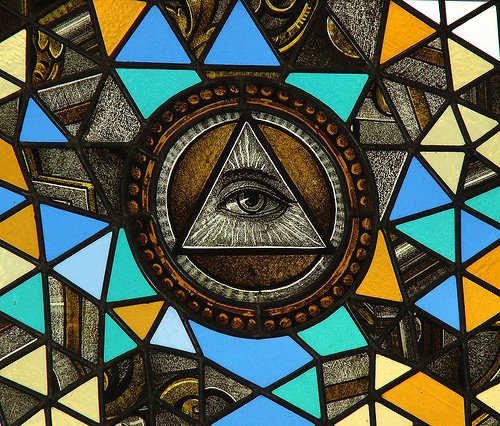Right. That woman's name is Kiesha Crowther, she calls herself Little Grandmother (here is her amazing personal website) and she is a Magus.
Depending on your personal definition of "Magus" you may well have a number of objections to that assertion. Her video is hokey as all get-out, and clearly bunk. Water is demonstrably not entirely made of crystals, there are almost certainly no "scientists" planning to hand out your personal stock of magic crystals to the people of Fukushima and dump them into the radioactive holding ponds because "love is stronger than radiation", and the idea that you personally will definitely have a large stock of magic crystals lying around is bizarre*. Moreover, if you've clicked through to her site you'll see that she's made a number of very bold claims about her supposed psychic abilities and the high degrees she holds in Native American traditional magics - these are all almost certainly lies as well.
But this misses the point.
A stage magician is not judged on their ability to actually saw people in half and magically heal them on the spot. A stage magician is judged on their ability to draw an audience into a consensus, misdirect their attention and provide a pleasing illusion that they have sawed someone in half. This takes a level of control over human perception which approaches the truly magical in the hands of a masterful practitioner - for a spectacular example check out this guy. Similarly, you can only judge the power of a Magus like Little Grandmother when you understand their true goal. In this case it's pretty simple - money, and the prestige necessary to create more money.
For those of you who didn't manage the whole video try it again, for those who did - pay close attention. Notice how crafted the whole thing is. She really does try to cover as many generically-New Age bases as she can, and even goes so far as to vaguely allude to some sort of Evil Big Government conspiracy to suppress True Knowledge toward the end there to try and bring in the survivalists. This is a magical ritual. She is trying to draw power from her followers to increase her stature and pull in some energy-in-the-form-of-money at the same time. The fact that her self-claimed powers are nonsense is entirely irrelevant because it's all misdirection - it's a carefully constructed mirage designed to hook into the cultural obsessions of largely white, fairly affluent, mostly-Americans, and me circa 1995.
And while she's no Crowley, Kiesha Crowther is powerful enough for her own ends. So long as she maintains her ritual Face Of Sincerity, keeps posing with massive crystals, and refuses to shut up she'll keep on getting speaking engagements and requests to run workshops and do rituals. She wields sufficient cultural force to have at least some of her detractors shouted down and shunned (if you really want you can check out the controversy on the New Age web here, but be warned - it's a hell of a rabbit hole). She's even been smart enough to keep her mythology sufficiently white-bread to leave her a back door out if she ever decides to "renounce" it all and "convert" to a more conservative racket like fundamentalist Evangelicalism.
Manipulation of the gap between perception and reality, resulting in a massive increase of personal power.
Magic.
_______
*Possibly less bizarre if you're one of the "Tribe Of Many Colours" she's addressing in this video, but still.
